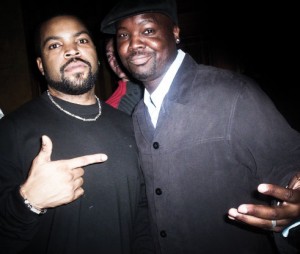Viv Leacock finds his way through love and art
Born in the mid-’70S in Montreal to Trinidadian parents and raised on Canada’s West Coast, Viv Leacock’s knack for being a natural entertainer has landed him roles in plenty of Hollywood and Canadian productions in the last decade. This married father weighs in on his evolution as an actor and his roles in The Thaw and Cell 213.
How did you go from having dreams of being a stand-up comedian to acting in television and film?
When I was 17 years old, there was a talent contest in my high school. One of the judges for the show was a local agent who approached me after the show and told me I had really good stage presence and charisma. I ended up going to an audition for a local show called Neon Rider and ended up doing five episodes. But eventually I walked away from acting for seven years.
What was the turning point that brought you back to acting?
Our mom passed in 1997 from the effects of a mild stroke. The only thing that got me out of the house was an acting workshop with a local casting director named Carol Kelsey. I went into the workshop completely open to any impulse and let my mother’s death hit me. I almost felt wrong using the memory of my mom, but I was so connected with the person I was doing the scene with and that’s where it all started coming together again for me.
How did you land the parts in Cell 213 and The Thaw?
My agent, Natasha Trisko, gave me the breakdowns for both characters. She believed that the virtues the characters possessed were in me as well. In the audition for The Thaw I gave my own little twist to it and ended up getting the part. With Cell 213, the character was an inmate, 6’4″, huge dude. I got the makeup and special effects woman from The Thaw to scar up and put tattoos all over my face. The next thing I knew, I was flying to Toronto for the shoot.
Why won’t producers take a powerful leap to help create more recognizable black talent?
Not enough has been done before this point. There’s no star system in Canada. They don’t know how to market us here. It’s difficult in that a lot of the producers and directors have a hard time with the whole black Canadian thing. There’s not any personal type of interaction to the point where when they see a breakdown for a show that calls for a doctor, they don’t automatically consider a black person for the role. They don’t think it because they don’t see it and that’s the problem.
Originally published in Sway Magazine, Spring 2009
Befriend Sway on Facebook
Sway with us on Twitter







Leave your response!